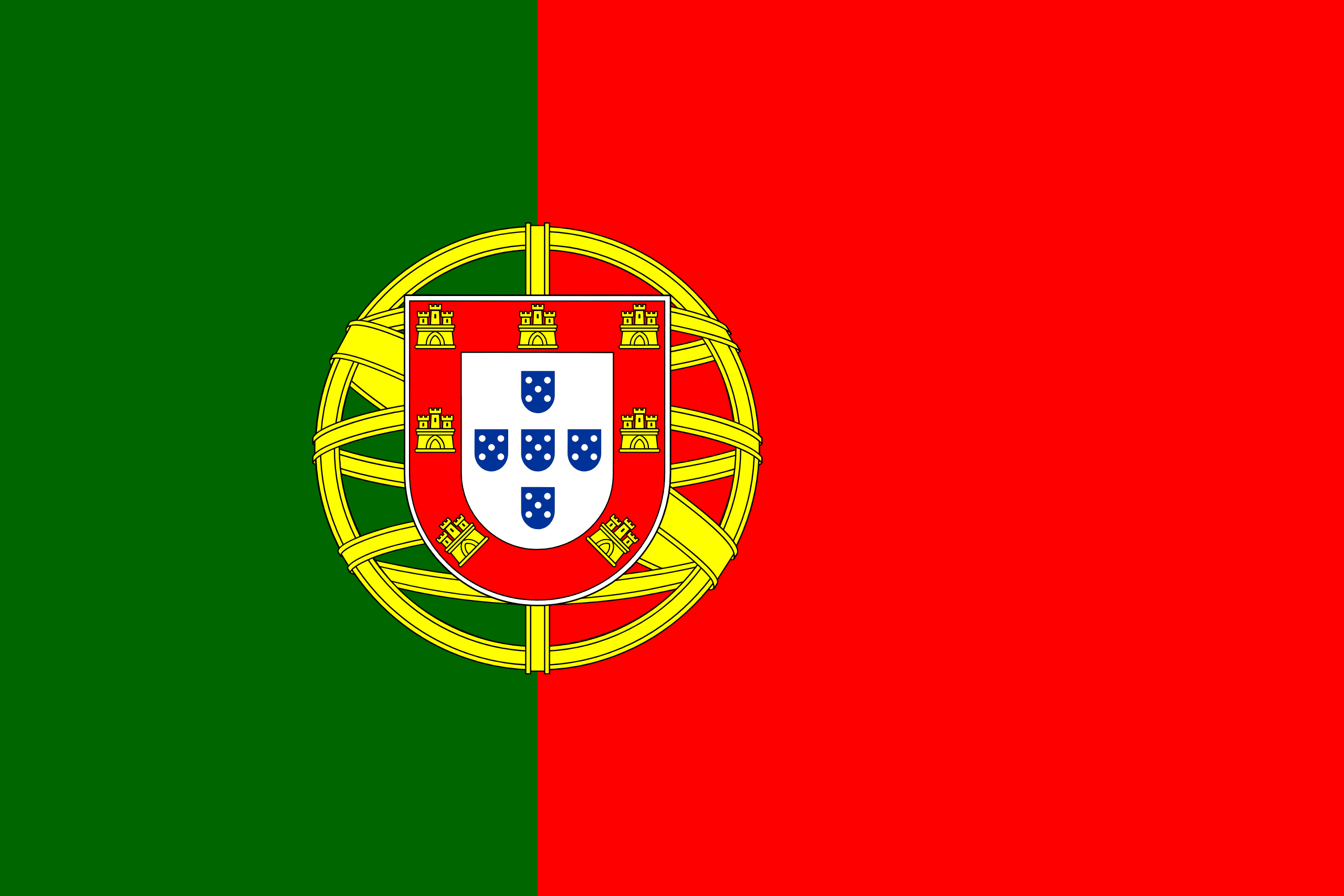Portugal
Portugal Travel Guide – All the information you need to plan a trip to Portugal.
Latest Posts from Portugal

Lying west of Spain on the Iberian Peninsula, Portugal has a proud seafaring tradition, and was at the forefront of the Age of Discovery. Explorers like Magellan and Vasco da Gama pushed back the horizons in the search for new lands and faster trade routes. Their skill and bravery made Portugal one of the richest countries in the world.
Portugal’s Algarve region has become a Mecca for golfers drawn to the multiple courses and the sunny climate. Visitors to Portugal can sample culinary specialties like codfish and Pastel de nata, washing them down with a traditional cherry liquor, Ginjinha, or the world-famous fortified wine, Port. It’s a tossup as to whether Port is the country’s most famous export, or football star Ronaldo!
Portugal Travel Guide – History
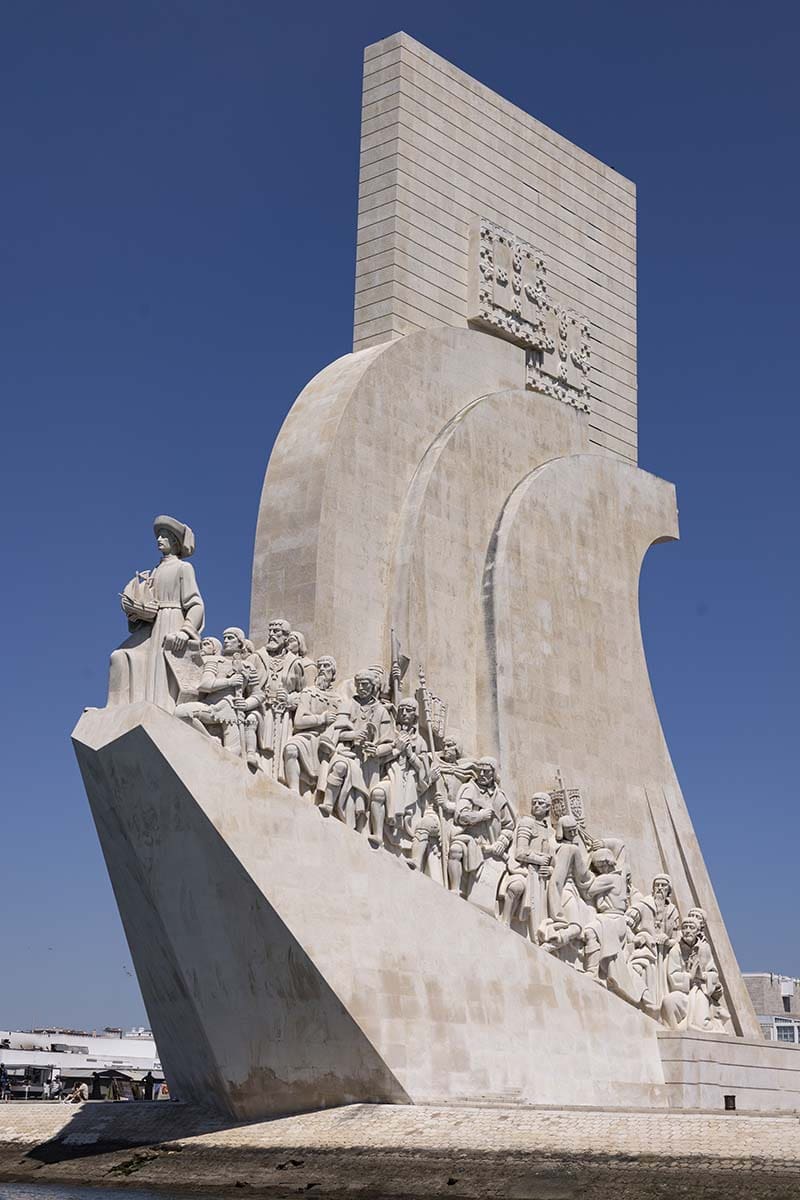
Portugal Travel Guide – Archaeological findings suggest that the Portuguese part of the Iberian Peninsula has been inhabited since antiquity. The region became part of the Roman Empire in the 3rd century BC, and significant Roman ruins can still be explored in cities such as Coimbra.
Portugal’s golden age arrived in the 15th century under the leadership of Prince Henry the Navigator. Portuguese explorers set sail across uncharted waters, opening up lucrative trade routes and establishing Portugal as one of Europe’s most powerful nations. Legendary figures such as Vasco da Gama and Bartolomeu Dias planted the Portuguese flag in what is now Brazil, as well as Atlantic islands like the Azores and various territories in Africa, including Angola and Mozambique.
In 1910, a revolution overthrew the monarchy, establishing a republic that evolved over the decades. By 1933, the authoritarian Estado Novo (New State) was formed under António de Oliveira Salazar, whose dictatorship lasted until the Carnation Revolution of 1974. This peaceful uprising led to the Third Republic and paved the way for modern democratic Portugal. Today, the country is a stable Western democracy and a proud member of the European Union.
Portuguese Culture
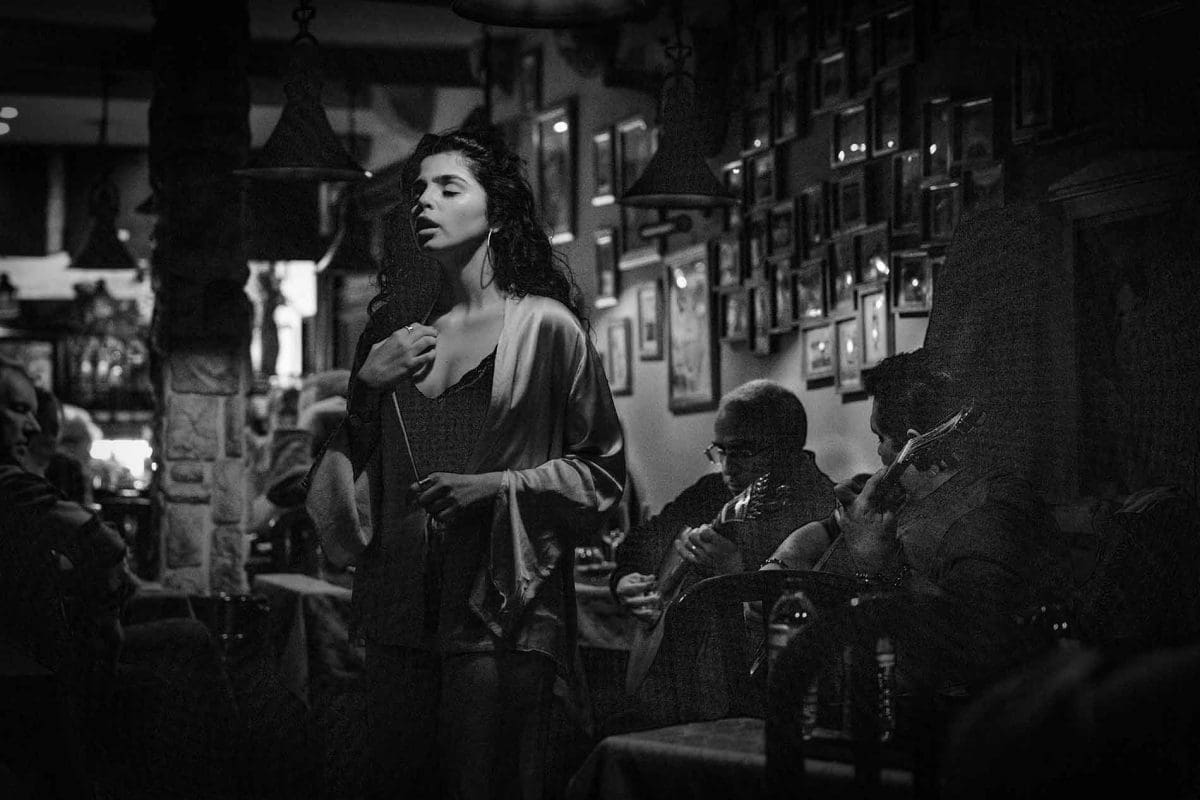
Music
Portugal Travel Guide Fado, a sad style of music from Lisbon’s docks, is Portugal’s most recognizable music. Featuring one or two vocalists accompanied by acoustic guitar. Fado performances are intimate affairs with no amplification. Audiences must remain silent out of respect to the performers. Failure to do so may result in ejection!
Portuguese Festivals
As a predominantly Catholic nation, many of Portugal’s most famous festivals are rooted in religious tradition.
- The Sardine Festival (Lisbon) – Honouring St. Anthony of Padua, Lisbon’s patron saint, this festival has evolved into a lively street party. Locals and visitors alike gather to enjoy music, grilled sardines, and a vibrant atmosphere. An ancient custom involves giving a pot of basil to a lover as a romantic gesture.
- Festa de São João (Porto) – Originally a religious festival, Porto’s celebration of St. John has taken on a life of its own. Although it shares sardines and basil with Lisbon’s festival, Porto’s celebration adds unique traditions. Porto celebrants playfully bop people on the head with plastic hammers and wave garlic in friends’ faces. The brave leap over the festival’s bonfires. A spectacular midnight fireworks display kicks off a night of revelry until sunrise.
- Burning of the Ribbons (Queima das Fitas) – This is an annual university tradition, especially strong in Coimbra, Porto, and Lisbon. Students ceremonially burn their coloured academic ribbons to mark the end of their studies.
Portugal Travel Guide – Sport
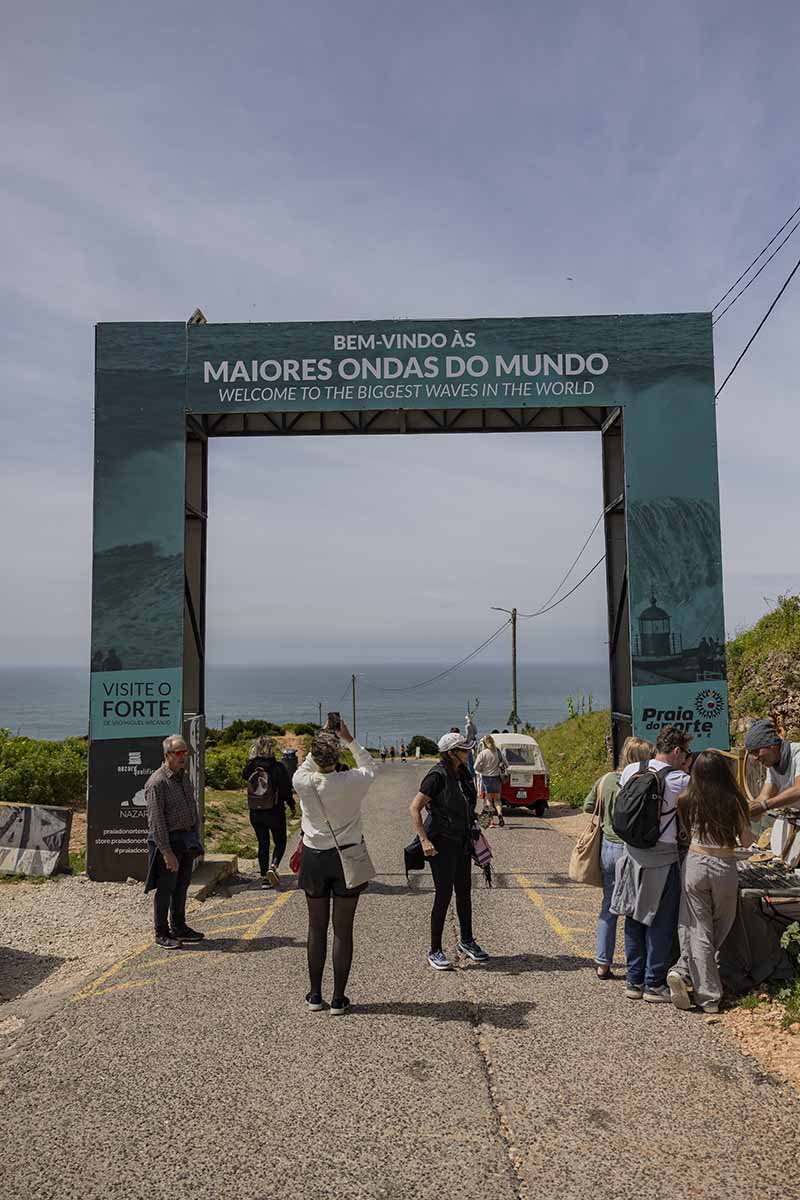
Portugal Travel Guide – The Portuguese love their sport. Football is the first love, but golf and surfing are right up there too.
- Football: Portugal lives and breathes football. The country has produced two of the greatest players of all time. Eusebio, ‘the Black Panther’ was the greatest player of his generation, leading Portugal to 3rd place in the 1966 World Cup and Lisbon club Benfica to the European Championship. Today, Portuguese football is synonymous with Ronaldo who won the Ballon D’or five times, and played for the national team over 200 times. Among many other records, he is the top goalscorer in international men’s football.
- Surfing: Portugal’s Atlantic coast has become a Mecca for surfers from around the world. Nazare is world famous because of the 5km deep undersea canyon close to shore which generated the biggest waves in the world. The best big wave surfers from around the globe congregate here to surf the ‘Hundred Foot Wave’.
- Golf: The Algarve has become one of the favourite golf regions in Europe because of its weather and the sheer volume of great golf courses in the area. Prestigious European Golf Tour event, the Portuguese Open, is played at the Royal Óbidos Golf Course, one of the oldest and best courses in the region.
Portugal Travel Guide Portuguese Cuisine
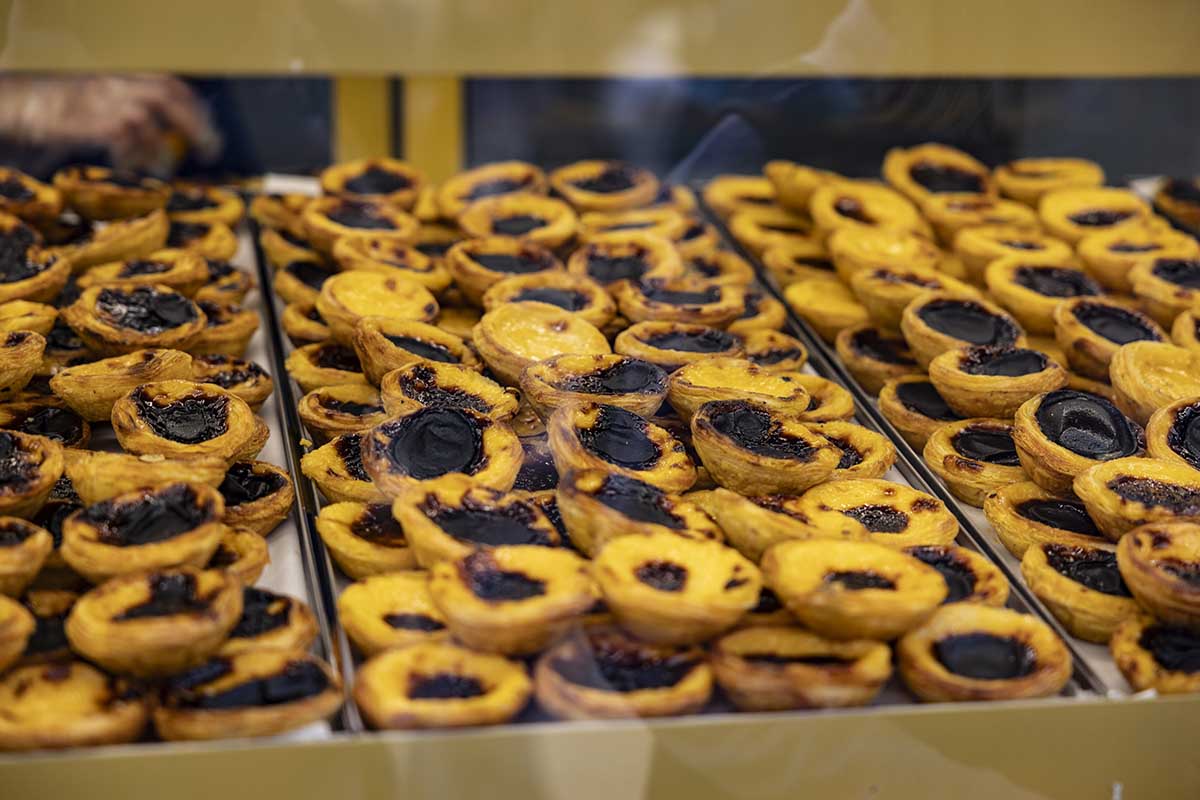
Any Portugal Travel Guide worth its salt will look at Portuguese cuisine. The Portuguese love their food and, not surprisingly for a maritime nation, fish, particularly cod, features heavily in its traditional dishes.
- Bolinhos de Bacalhau – These deep-fried cod and potato croquettes are a popular snack or starter, packed with parsley, onion, and egg.
- Pastéis de Nata – Portugal’s famous custard tarts are a breakfast staple. Every bakery has its own variation, but the most famous come from Pastéis de Belém in Lisbon, where visitors queue to taste the original recipe.
- Ginjinha – A sweet cherry liqueur served in small plastic cups or, for an extra treat, in an edible chocolate cup, giving it a Black Forest gateau flavour.
- Francesinha – Dieticians and cardiologists look away now! This indulgent sandwich layers ham, sausage, and steak between thick slices of bread. Next, they top it with melted cheese and drench it in a rich beer and tomato sauce. Then they add chips…
- Beef Pica-Pau – “woodpecker beef.” Bite-sized pieces of beef in a savoury sauce, served with pickled vegetables and eaten with a toothpick.
- Port Wine – Port is arguably Portugal’s most famous export,. This fortified wine is made by adding brandy to fermenting grapes, creating a sweet, rich drink. Port is enjoyed worldwide as an after-dinner drink.
Portugal Travel Guide – Conclusion
Portugal Travel Guide – Portugal is a country of deep cultural heritage, breathtaking landscapes, and a passion for life. Visiting Portugal gives travellers a window into its music, festivals, sport, and cuisine. Visitors to Portugal can explore historic cities, ride Nazare’s giant waves, or simply enjoy a glass of Port. Whatever your interests, Portugal offers an unforgettable experience.

